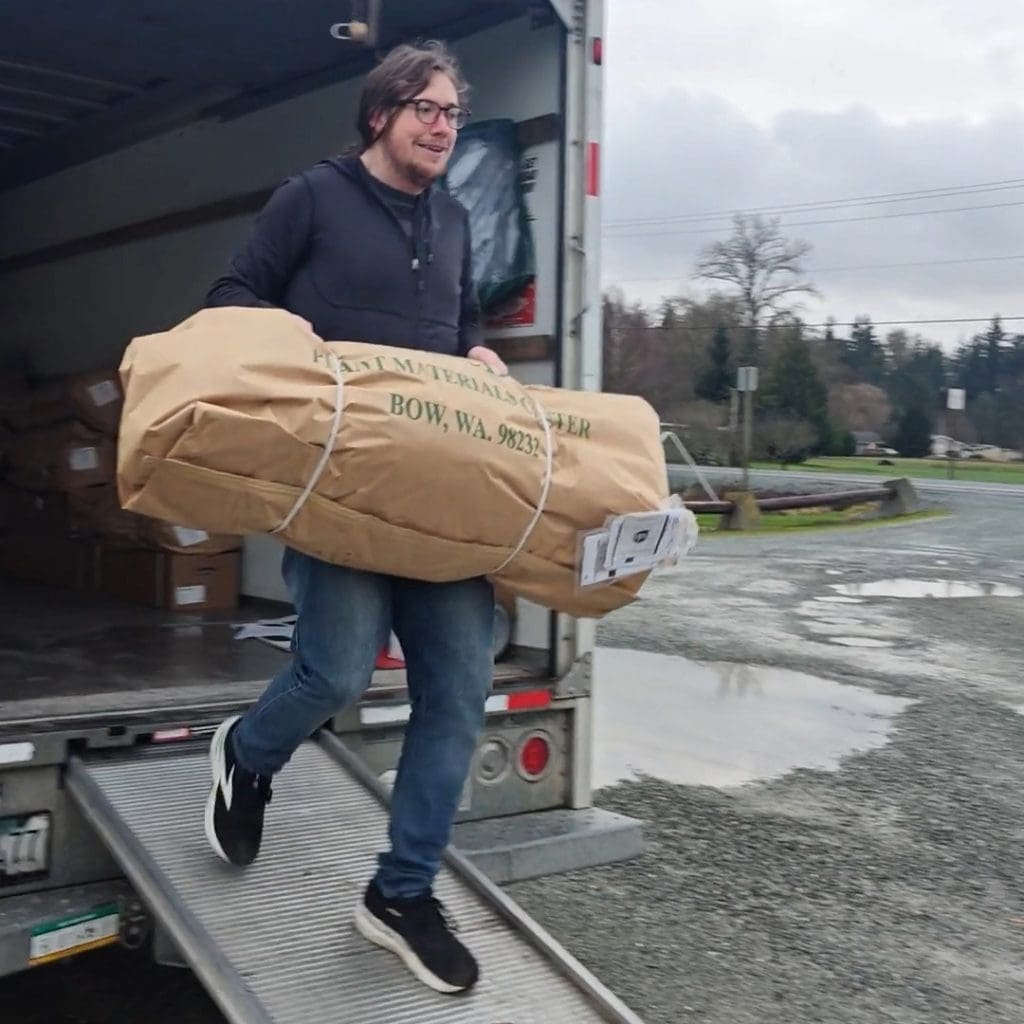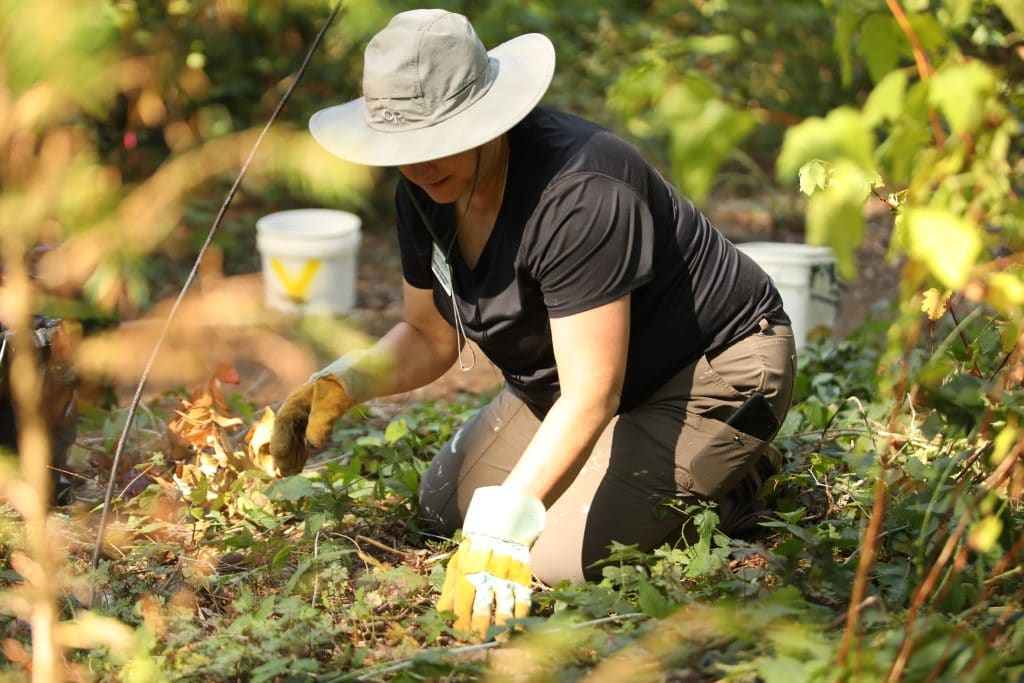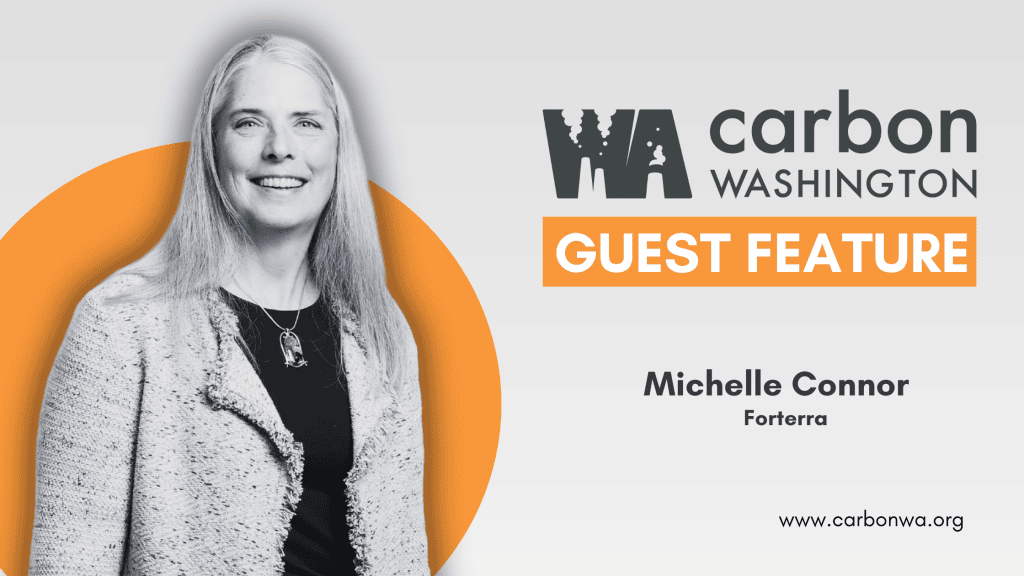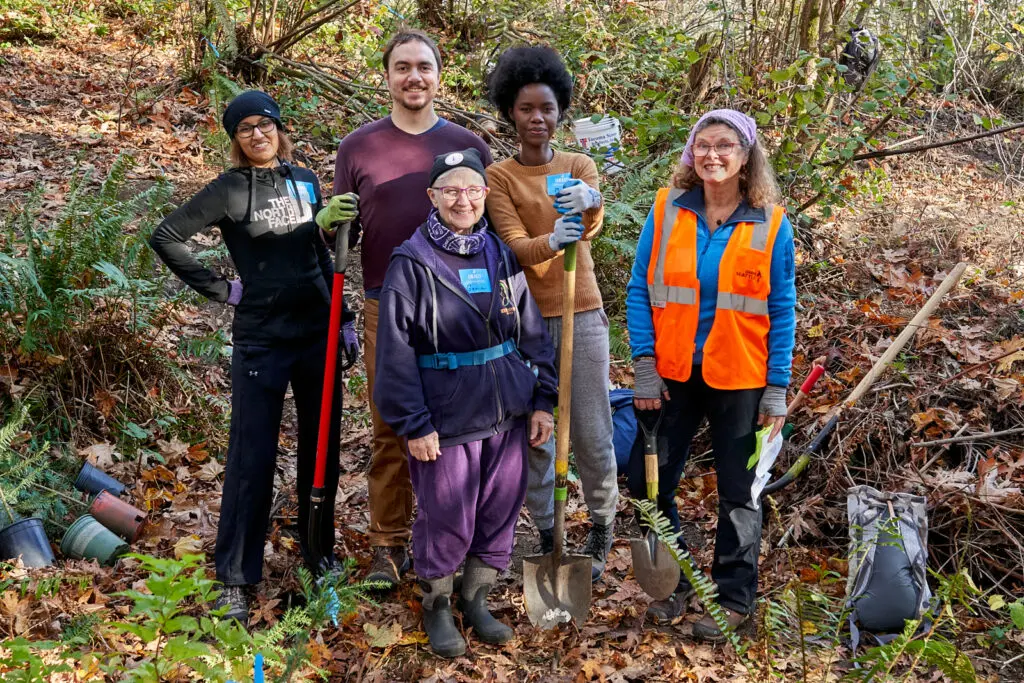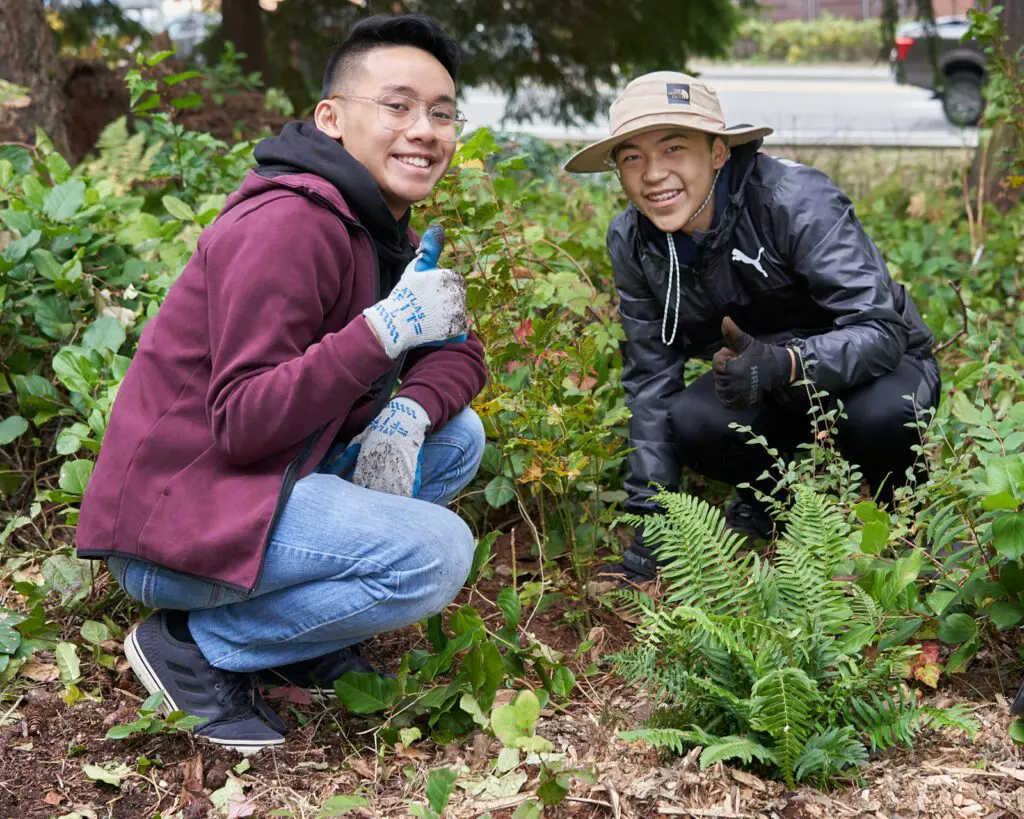At Forterra, we emphasize Land for Good™. Perhaps there is no more tangible example of that than how we approach conservation and restoration. Our focus on land is always with a greater social, environmental and economic purpose in mind. One example, we buy strategic parcels to create affordable housing for greater economic opportunities in communities that lack equitable access to capital and resources. We adhere to strict environmental guidelines — whether the acquisition is rural or urban. We also strive for a better social and economic outcome through land — whether that is by conserving farmland in perpetuity for local and regional food systems or conserving natural green spaces where highest-bidder housing would otherwise appear.
The Upper Skykomish Area on the western shoulder of the Mt. Baker-Snoqualmie National Forest is one example of Forterra’s holistic approach to conservation. This is an area that is vulnerable to degradation because of its increasing population growth, automobile traffic, proximity to critical water sources and its location in the Mt. Baker-Snoqualmie National Forest. Like our approach to all conservation, we consider land, water and community as a whole. This project is just one segment of the larger Snohomish-Skykomish watershed area—spanning from Stevens Pass to Everett—that we have been working on for years.
Land: In 2018, Forterra acquired the Lake Serene Trail property just south of Index and is working with the owner of a 103-acre tract on the north slope of Mt. Index, which is contiguous with the Lake Serene Trail. We also hope to acquire approximately 800 acres of nearby mixed and old-growth forest.
Water: In conjunction with other regional partners, Forterra is part of the basin-wide approach to restore riverbanks to native vegetation for a healthier Skykomish-Snohomish river system. We are currently working to eradicate invasive weeds on the South Fork of Skykomish River, just north of Lake Serene and Mt. Index. Our goal, here and elsewhere, is to restore the health of the entire river system.
Community: Tulalip Tribes, which has historic, cultural and treaty right connections to the Snohomish basin, voiced concern over growing recreation and recreation planning in the watershed. In early 2019, Forterra became the first organization in the region to formally acknowledge and commit to support Tulalip Tribes’ Principles for Supporting Treaty Rights and Tribal Lifeways. These Principles serve as an instructive guide for how nonprofits and other organizations can better support them.
In addition to Tulalip Tribes, Forterra continued to engage residents, elected officials, recreational user groups, and land managers throughout the Skykomish-Snohomish River Valley in discussions to identify challenges and opportunities for land uses that support multiple goals, including growth management, natural resources management, salmon recovery and economic development.
These are just a couple of many projects that tie back to our core principles and exemplify Land for Good™. We see the connection between people, land, water and land use, and that effective solutions must consider all of these to be viable over the long-term. Within our commitment to Land for Good™ are all of these considerations that contribute to a lasting and sustainable environmental paradigm.
For more information contact us at info@forterra.org.
